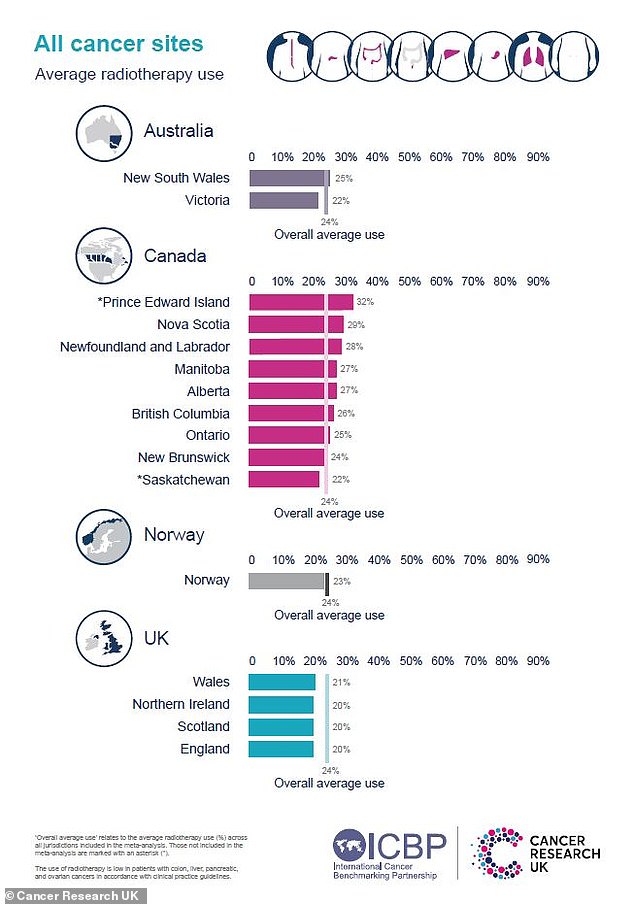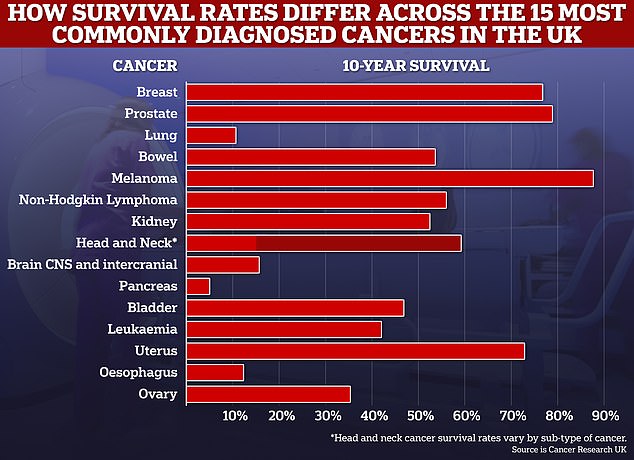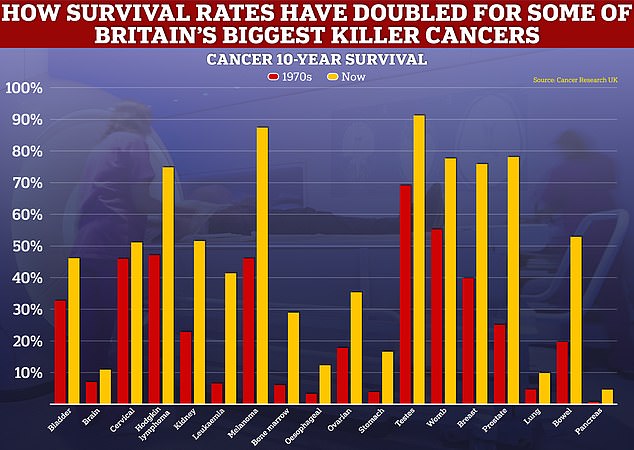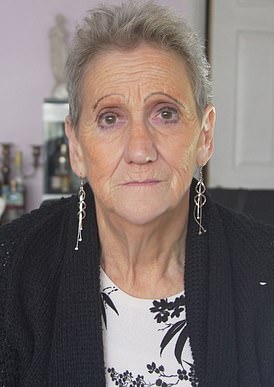Older patients are being denied life-saving cancer care by the NHS, a major study has warned
Older cancer patients are being denied potentially life-saving treatments by the NHS, a major study warns today.
Cancer survival rates in Britain lag behind those in comparable countries because patients are less likely to receive chemotherapy and radiotherapy, the first study on three continents has found.
The lottery for treatments was particularly strict among older patients, with fewer than three in a hundred patients over the age of 85 receiving chemotherapy – twenty times fewer than patients in the 65 to 74 age group.
Last night critics described it as ‘blatant ageism’ and accused the NHS of ‘excluding’ this generation from life-saving treatments.
Anne Shaw (pictured with husband Louis) has won a six-figure payout after NHS medics failed to detect her cancer and ease her concerns for two years

The study was conducted by the International Cancer Benchmarking Partnership and is the first to examine treatment differences for eight types of cancer on three continents. Graph shows the average radiotherapy use


While the level of progress in cancer survival has been rapid in some forms of the disease, such as breast and prostate cancer, others, such as lung and pancreas, have improved only at a snail’s pace.
University College London examined data from 780,000 people diagnosed with eight types of cancer in Australia, Canada, Norway and the United Kingdom. In addition to the wide disparities in treatment, British patients faced some of the longest wait times to start cancer care, typically 81 days in Labour-run Wales.
Experts said lower treatment rates, along with delays in diagnosis and treatment, were the “missing piece of the puzzle” in explaining the country’s stagnant cancer care.
Samantha Harrison, from Cancer Research UK, said: ‘What we can say now is that treatment clearly plays a role in survival differences.
‘The countries with better outcomes tend to have both higher and faster uptake of treatments. In this country, less use is made of chemotherapy and radiotherapy, especially in older patients, and this has consequences for survival.’
Researchers from the International Cancer Benchmarking Partnership looked at cases of esophageal, stomach, colon, liver, pancreas, lung and ovarian cancer diagnosed between 2012 and 2017.
They found that people aged 85 and over were three times less likely to receive radiotherapy than people aged 64 to 74. Only 2 percent of British patients aged 85 and over received chemotherapy, compared to 8 percent in Australia and 14 percent in Ontario. Canada.
Caroline Abrahams, director of Age UK, said it showed that older people were susceptible to ‘unequal treatment’ within the NHS. She added: ‘While it is true that older people are more likely to live with multiple conditions, that alone is not a valid reason to rule them out. With the right support and clinical expertise, many older people can and will still choose to benefit from cancer treatment.’
Dennis Reed, of over-60s campaign group Silver Voices, said: ‘The NHS has shown time and time again that it is systematically age-sensitive. The older you get, the less likely you are to be diagnosed in time, and even then the chances of needing medical or surgical intervention are much smaller.’
Compared to four peer countries, Britain was less likely to use chemotherapy for all cancers examined, according to the findings published in the Lancet Oncology.
An NHS spokesperson said: ‘More people than ever are being diagnosed with cancer at an early stage and there are more treatment options available.

